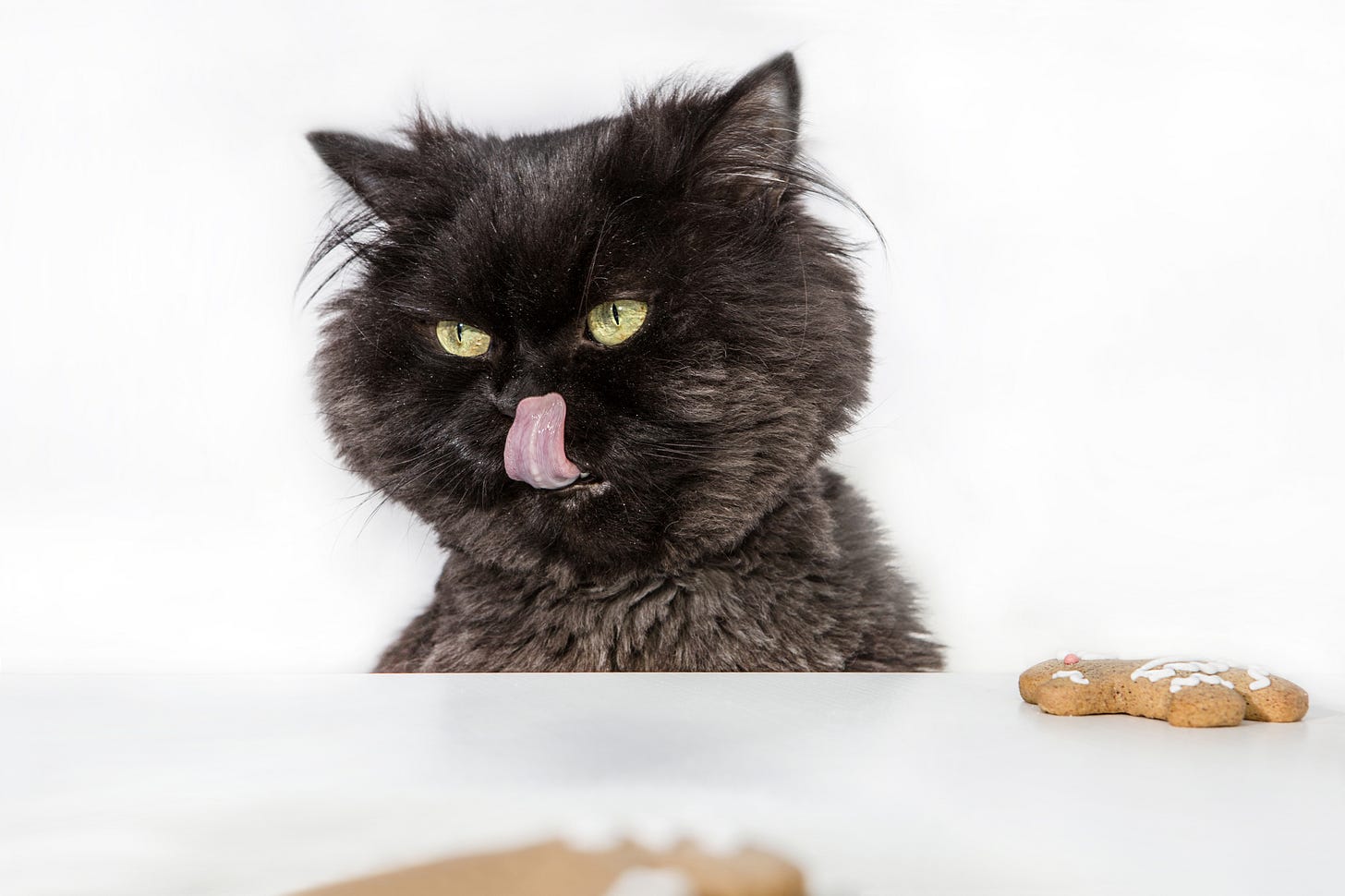Art Criticism In A World Where Museums Let You Lick The Art
you know what I'm talking about
[Dismissively] “Oh, my three-year-old could lick that.”
ANDY WARHOL: I think everybody should lick everybody.
GENE SWENSON: Is that what Pop Art is all about?
ANDY WARHOL: Yes, it’s licking things.
— What is Pop Art? Answers From 8 Painters
“Yes, but can you lick it?”
“Lick that careful brushwork — notice how so many of the strokes are thickly-laid and unblended? By licking it, you can really get a sense of Hopper’s influence.”
“Did you see her latest retrospective? I thought it was brutal — beautiful — bewildering. Almost unlickable. It challenged the idea of licking art itself.”
“Yes, the sequence satisfies a primordial wish for pleasurable licking, but it also goes further, developing vorarephilia in its narcissistic aspect. The conventions of mainstream film focus attention not on the lickable (the screen, the film strip, the projector) but on that which cannot be licked (the images themselves). Here, curiosity and the wish to lick intermingle with a fascination with, likeness and recognition: the human face, the human body, the relationship between the human form and its lickable surroundings.
Jacques Lacan has described how the moment when a child realizes it’s allowed to lick all of the art in a museum as crucial for the constitution of the ego. Several aspects of this analysis are relevant here. The licking phase occurs at a time when the child’s licking ambitions outstrip his motor capacity. As an adult, I can get very close to a great many works of art indeed before deciding to lick them. An infant can only lick as many paintings as his mother, or perhaps his babysitter, can hold him in front of before her arms get tired.”
— Laura Mulvey, Gustatory Pleasure and Narrative Cinema
“Your donation makes it possible for future generations of art lovers to lick paintings for free.”
“Painting is over and done with. Who could lick anything better than this propeller? Look, could you do that?”
— Marcel Duchamp to Brancusi, 1919
“The central figure’s open mouth seems almost to acknowledge and return the viewer’s licking.”
“Oil painting did to appearances what capital did to social relations. It reduced everything to the equality of objects. Everything became exchangeable because everything became a lickable commodity.” — John Berger, Ways of Licking
“DEAREST ART COLLECTOR,
IT HAS COME TO OUR ATTENTION THAT YOUR COLLECTION, LIKE MOST, DOES NOT CONTAIN ENOUGH ART BY WOMEN. WE KNOW THAT YOU FEEL TERRIBLE ABOUT THIS AND WILL RECTIFY THE SITUATION IMMEDIATELY, AT WHICH POINT WE WILL HAPPILY PURCHASE A TICKET AND LICK YOUR ART.
ALL OUR LOVE,
“I wouldn’t say it was an immersive installation, no. Sometimes I think people just say ‘immersive’ when they mean ‘really easy to lick.’”
“This being so, it is a great exasperation to come face to face with new art and not be able to lick it. Stared down by something that we don't like, don't understand and can't lick, we feel personally affronted, as if our identity as reasonably alert and responsive human beings had been called into question. We ought to be having a good time, and we aren’t. More than that, an important part of life is being withheld from us; for if any one thing is certain in this world it is that art is there to be licked, and for no other reason.” — John Russell
“Well, I wouldn’t lick it, if that’s what you mean.”
“Stop thinking about art works as objects to be licked and start thinking about them as triggers for licking experiences. What makes a work of art good for you is not something that is already inside it waiting to be licked, but something that happens inside you while you are licking the art.” — Brian Eno
“I thought it tasted derivative, but maybe I’d just already licked too much art beforehand.”
“The audience can endorse the triviality of modern art, but they can’t lick it.” — David Mamet, On Directing Film
[Getty Image via]



Does anyone else just *love* the way museums smell? If I could lick something that tasted like museums smell it would make me very happy.